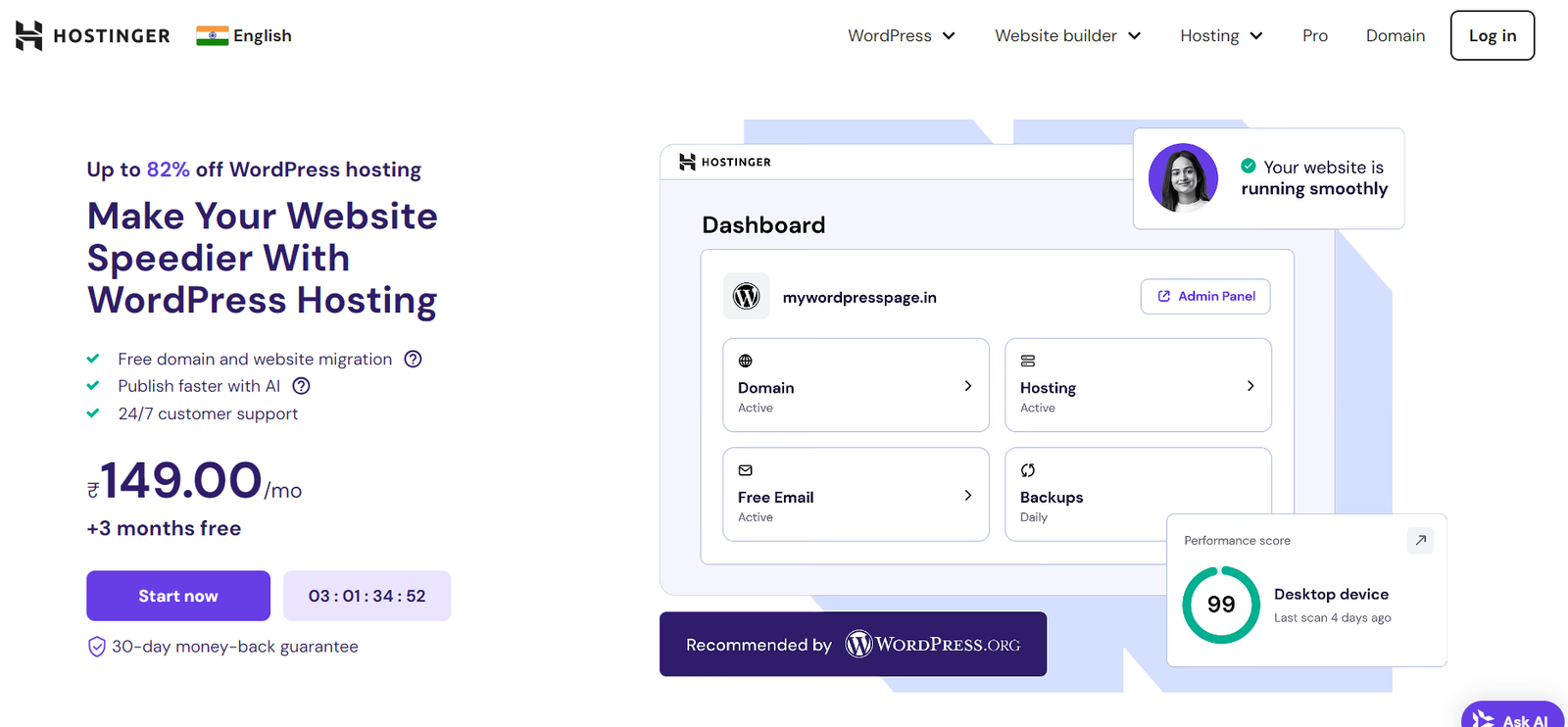The best Web hosting simply refers to a service that makes your web site stay online. It stores the files of your website on a special computer, known as a server. When someone types in the name of your website-your domain-the server sends back the appropriate files to draw up that page.
What is Web Hosting?
With the best web hosting, your website can reside on the Internet. A server is a special computer where all of your website’s files-including text, images, and videos-are stored. Thus, when someone enters your website name (your domain) in the browser, it takes the necessary files from the server and presents to his browser your site.

Types of Web Hosting
There are different types of web hosting, and which you want will depend on the type of website you are building and how much traffic you are expecting. The amount of resources a website uses varies between websites. The minimum type of web hosting is probably shared web hosting, simply designed for small websites or ones that experience moderate levels of traffic. More advanced options, however, are available for larger websites or higher traffic levels.
1. Shared Hosting

Shared Hosting is the most common best web hosting when more than one website shares a physical server. More than one site is hosted on the same server and accesses a fraction of resources such as storage, bandwidth, and processing power but occupies the total capacity.
How it works
Think of it like living in an apartment where shared water and electricity utilities are consumed by many other people. While every apartment in the block has its own space, if one apartment uses more than their share of the utilities-for example, many guests-in the block, then it can affect the performance of other apartments staying on the same block.
Key Advantages:
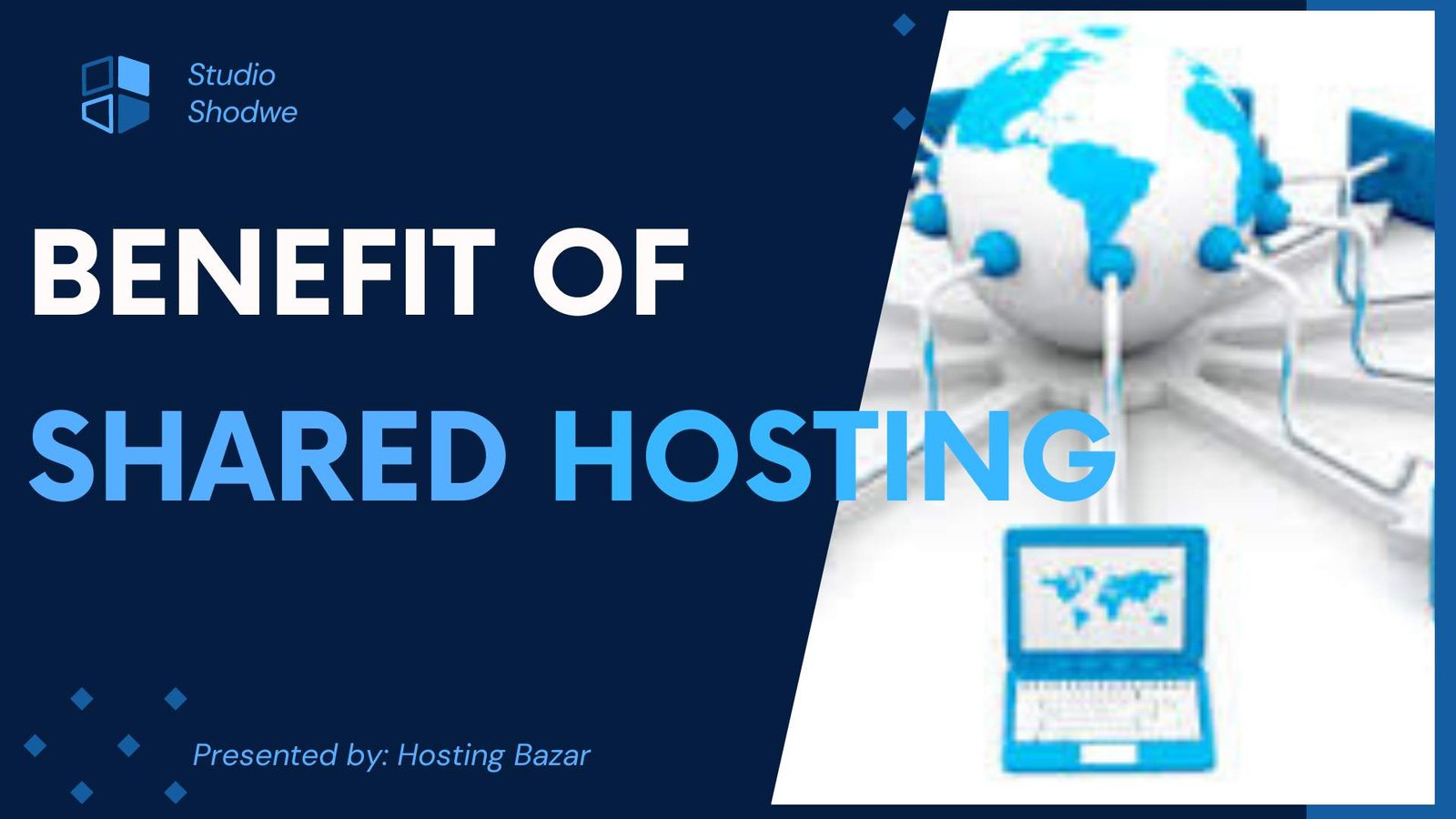
Since the cost of the server is shared with different users, shared hosting is the most economical. Most Hosting providers will offer easy setup tools, on-click installations for example, WordPress, and user-friendly control panels. This makes it the best choice for new users. Managed Server Maintenance: You won’t be concerned with technical matters since the hosting provider takes care of server maintenance, updates, and security .
Since you are sharing the server, then your website may surge on other sites and slow down.
You do not have much control over server settings, which might be a problem if specific configurations or software needs must be met.
Shared hosting is suitable for small business websites, personal blogs, portfolios, and other similar sites that consume little to no resources and do not anticipate heavy traffic
2. VPS Hosting (Virtual Private Server):

VPS hosting uses virtualization to provide dedicated resources on a shared physical server, so it offers more control and better performance than shared hosting. It’s like having your private space-guaranteed CPU, RAM, and storage with smooth performance.
How it works
VPS hosting shares the server into several virtual servers where each virtual server has its operating system and resources. Unlike shared hosting with VPS, you never experience resource interference; hence your site will never be affected.
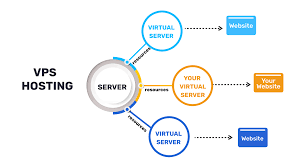
Advantages
Stable performance is assured.
Scalability: The system can quickly be upgraded and scaled with the growth of your site. You gain full access to server settings. It serves an isolated environment that reduces the threat of security. Recommended for Growing websites, eCommerce sites.
Businesses that use much more resource utilization and control than what is given by shared hosting. VPS hosting is an affordable solution that is scalable for web sites requiring more power and customization.
3. Dedicated Hosting
Dedicated Hosting gives you a dedicated physical server entirely for your website or application. In shared or VPS hosting, the resources are only dedicated to your use from the CPU, RAM, and storage. Dedicated hosting is best suited for huge websites and high-traffic applications that require maximum control, performance, and security by businesses.
How it Works

Dedicated hosting: you rent a whole server from a hosting provider. The server is rented out only for your site; therefore, in the case of this type of hosting, you have control over the configuration, as well as the operating system and installed software. All the provider will do is all hardware management, or you can choose to put your site into a managed program where they take care of everything.
Advantages
In full access, your website will now have optimum load times and performance for the highest conceivable efficiency. You’re permitted to fully control server settings, software, and configurations for a customized experience. Enhanced security is largely minimized with breaches dedicated to your site, making it create a safer online space. You also get full customizability in choosing the operating system, hardware, and software that best fit your needs. Dedicated hosting would be ideal for high-traffic websites, as they would ensure high volumes of visitors are handled without losing speed.
When to Choose Dedicated Hosting
Sites that have high traffic require much traffic and resource-intensive demands. Hard applications require full control to run some of the more resource-hungry or custom applications. eCommerce sites have a requirement for improving the security to be able to handle sensitive customer data.
4. Cloud Hosting

Cloud Hosting is a new form of web hosting using the network and vast pool of virtual servers in the cloud to host sites and applications instead of one single physical server. It distributes resources across multiple servers, thereby ensuring higher availability, scalability, and reliability.
How It Works
In cloud hosting, your website resides on a cluster of servers that work together to deliver such resources as storage and bandwidth and processing power. This simply means if you have one server crumpling down, your site will be saved to continue operation at another.
Advantages
It can quickly scale up or down the resources to match the website’s needs without causing any downtime. High availability ensures that the site remains alive even when one server fails. It is cost-effective: you pay only for your resources, which makes it fit for businesses of any size. Flexibility allows you to host applications and different types of websites, for instance, adapting to dynamic changing requirements.
Conclusion/ When to Choose Cloud Hosting
Cloud hosting is appropriate for dynamic websites that have varying traffic, the most resource-intensive applications that need high performance without lags, and most importantly, it is a low-cost hosting option for startups and businesses, without huge one-time costs. Generally, cloud hosting is very accommodating and reliable because it is generally scalable in terms of available resources and offers high availability to accommodate the flexibility of enterprises and other websites who want to succeed in a dynamic online environment.
Similar there is many webHosting like Managed WordPress Hosting This hosting is actually optimized for WordPress-it comes with automated updates, enhanced security, and expert support. It makes managing a website easy, and users can focus more on creating content than technical maintenance.
What to Look for in a Web Host

Choosing the right best hosting provider is daunting, yet if you know what to look for, it doesn’t look so difficult after all. So here are some of the most important things to pay attention to
- Reliability and Uptime: You want your website to be available 24/7. Look for a host that assures minimum uptime of 99.9%. Uptime refers to the number of hours a website stays live without any downtime.
- Speed: Your website speed is very crucial to the
experience of visiting it and hence to the ranking on search engines. A fast
host ensures that your site loads fairly quickly, putting visitors in a happy
state of mind. - Customer Support: Especially if you are not very techie, good customer support is the way to go. Look for hosting providers that offer support through chat, phone, and email
during 24/7 hours. - Security: You need to ensure that security exists in the
hosting of your website to avoid hacking. You must ensure that hosts have
security features such as giving SSL certificates, carry out regular backups,
and malware protection. - Scalability: When you start and grow your website, you’d
want the host to be able to keep up with your growth. That’s when upgrading
hosting is easy for you. - Pricing: Price is certainly not everything, but it is
an important consideration and, in comparison, hosting plans can vary
significantly in cost. Be sure to check for any additional fees.
Best Web Hosting Providers
Now that you know what to look for, let’s run through some of the best web hosting providers available today.
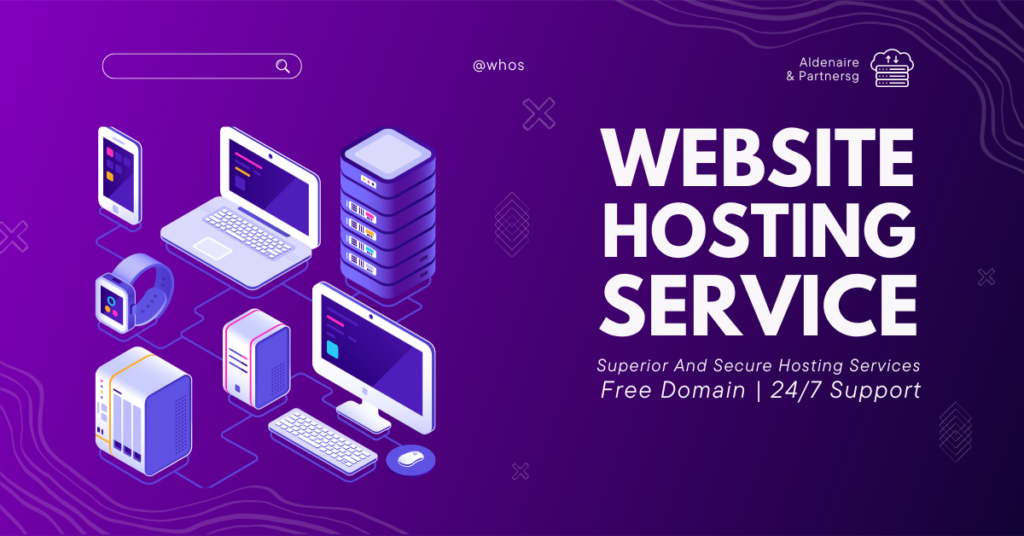
1. Bluehost:

Bluehost is one of the best hostings one would love to hire to host their own website, especially for beginners using WordPress because it is officially recommended by WordPress for great customer support at a very affordable price, that’s just $2.95/month. Its user-friendliness and support make it one of the top choices for a first-time web owner. You can make your account through this link “click here“.
2. SiteGround
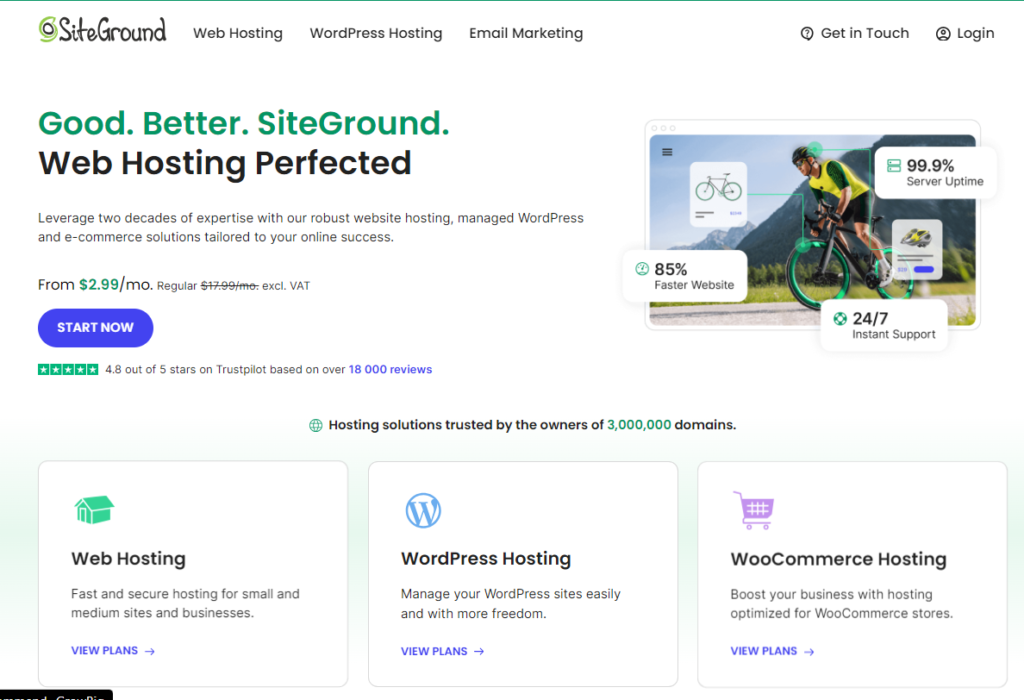
SiteGround is one of the excellent providers that will be very helpful to the users of WordPress, owing to its outstanding speed and tight security features. This ensures that websites or sites load fast in time and lets them provide the needful speed value at about $3.99/month. The hosting company has been hosting more than 3,000,000 domains around the world and offers shared hosting, cloud hosting, enterprise solutions, email hosting, and domain registration services. As of 2019, the firm had nearly 500 employees. You can make your account through this link “click here“.
3. HostGator
An extremely affordable and user-friendly hosting service, HostGator is great for small sites: With hosting plans starting at a very modest $2.75/month, HostGator is a very basic, easy-to-use site creation platform ideal for small sites in terms of flexibility and price.
4. A2 Hosting:
A2 Hosting is popular for fast loading speed and reliable uptime. It would be a good provider for websites that require speed and reliance. A2 Hosting provides both shared and cloud hosting. So A2 Hosting can cater to every type of need. It starts from $2.99/month, and in terms of both performance and price, it would be a relatively good option.
5. InMotion Hosting
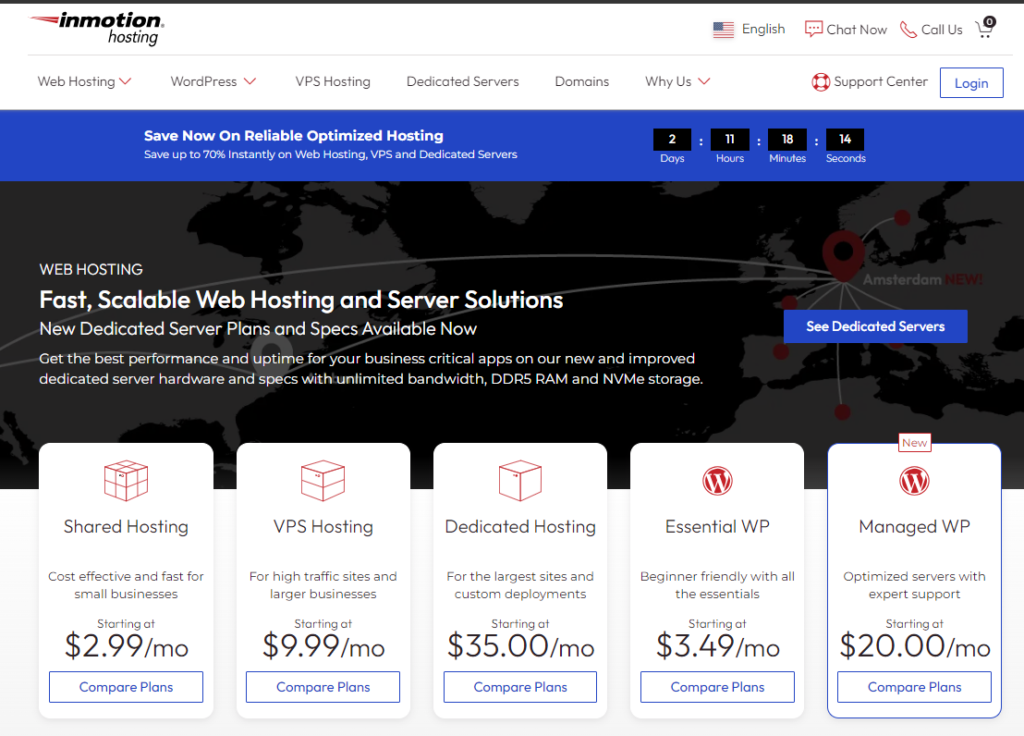
InMotion Hosting has a reputation to be a solid, well-rounded best web hosting provider that delivers through great customer service and dependability. The company is very good for the small business owner and the eCommerce sites, adding stability and support to growing online ventures. At a price of $2.49/month, InMotion Hosting is also affordable and powerful enough, thus one of the most recommended businesses to use for certain needs. You can make your account through this link “click here“.
Final Thoughts
The choice of the best web host is fundamentally dependent upon your needs. If you are starting out, shared hosting would well suffice. Once your website begins growing from strength to strength, you can always change over to a VPS, dedicated, or a cloud host. Just remember, however, that all four elements: uptime, speed, security, and support are the bare minimum, and you will do great. To read know mare go to this side “click here“.
